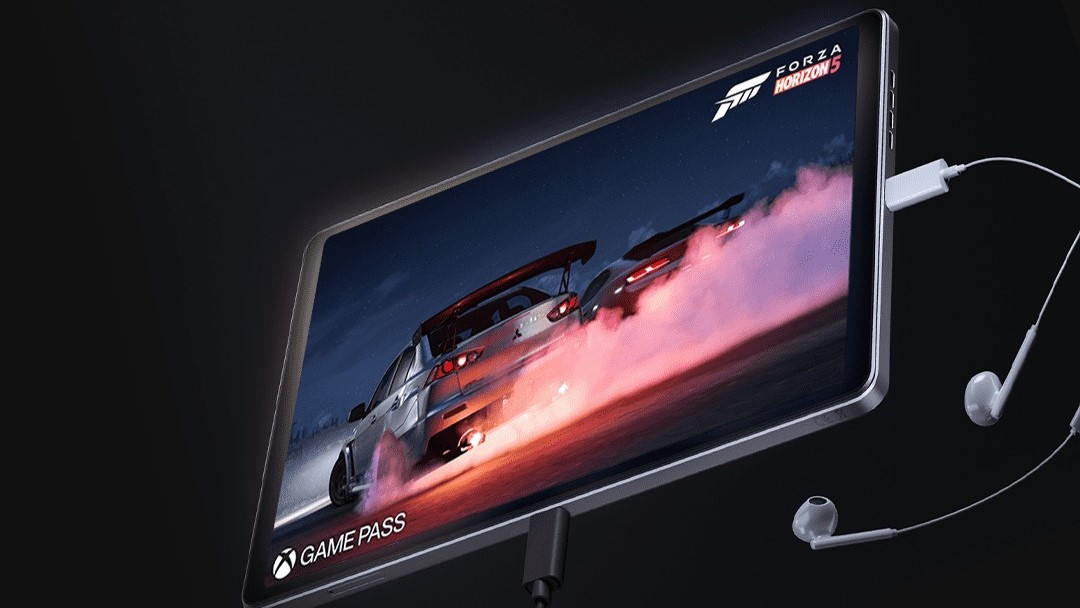I'm more excited about Samsung's vague AI health plans than the Galaxy S25
Forget the Galaxy S25 Edge, give me a more comprehensive, AI-backed Samsung Health app for the Galaxy Watch 8 and Ring 2.
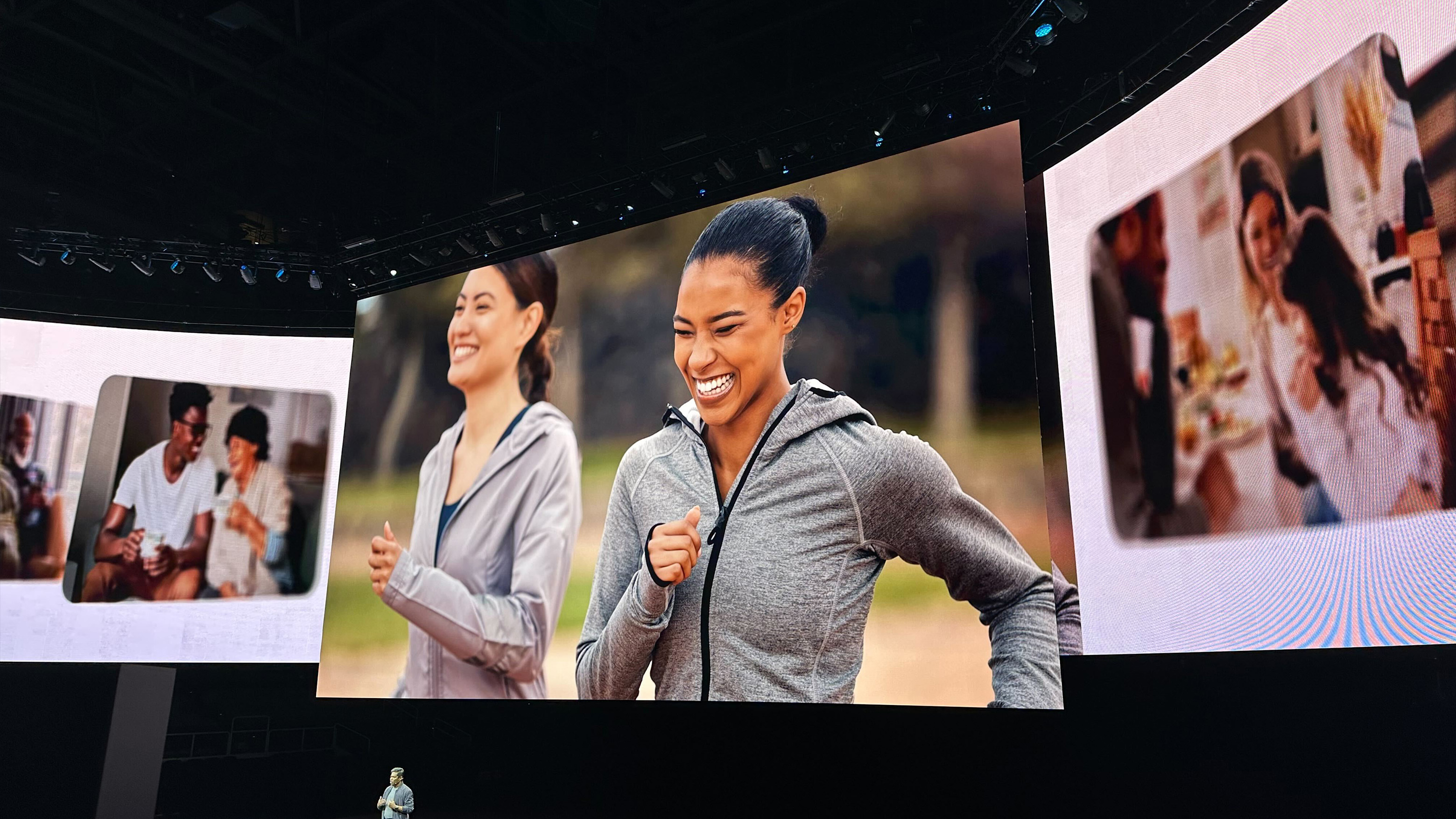
Galaxy Unpacked typically spends about 90% of its two-hour runtime on phones, cameras, and AI. This Wednesday, while I photographed the Galaxy S25 Edge and other show-floor demos in San Jose, my mind was fixated on the 10% — specifically, the easily missed segment where they talked about Samsung Health.
The Galaxy S25 sounds powerful but very familiar. I just got a Pixel 9, and since Samsung will rely heavily on Gemini for its new phone, its innovations didn't feel fresh enough. And I know at least one of my colleagues agrees about this!
More importantly, I'm a smartwatch guy, not a phone guy, and I have to wait another six months for the next Unpacked to see the Galaxy Watch 8. I had futile hopes for a glimpse of the Galaxy Ring 2 or more info on Project Moohan, and Samsung dashed them.
Thankfully, Dr. Praveen Raja, Samsung's VP Head of Digital Health, sated my wearables hunger when he came on stage to reveal the "new features" coming to Samsung Health in 2025.
Despite the lack of specifics, these features have me intrigued that the Watch 8 and Ring 2 will launch with much more exciting software than the last generation.
Samsung has a unique spin on training load
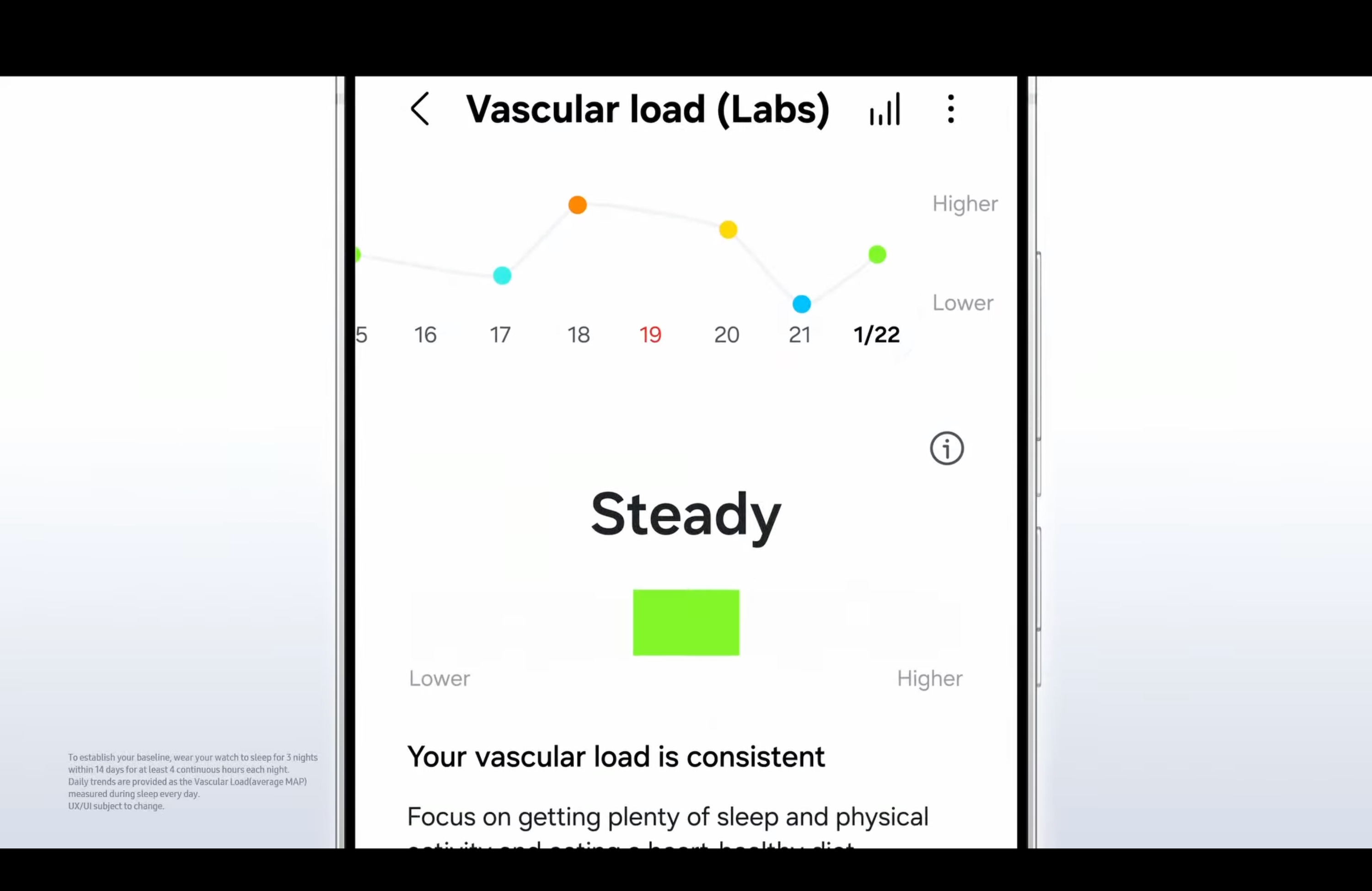
The first new Samsung Health feature unveiled on stage was "Vascular Load Indicator," a Labs (aka experimental) tool that monitors how your "daily activities impact your cardiovascular system," to help you "reduce strain on your heart and maintain long-term heart health."
"Load" is a familiar smartwatch term. Garmin watches and other fitness brands show your training load score after every workout, Google has its Fitbit Cardio Load to quantify both workouts and non-workouts for their level of exertion, and Apple Watches show a weekly training load graph relative to your past workout efforts.
Be an expert in 5 minutes
Get the latest news from Android Central, your trusted companion in the world of Android
I expected Samsung to do its own fitness-focused training load spinoff this year. Instead, vascular load seems to be a health-focused spin on the concept. Even if I'm more interested in fitness, I think that Samsung made a smart move to differentiate itself from its rivals and play to its health-tracking strengths.
Samsung hasn't yet explained how it'll track vascular health, but the Galaxy Watch 7 already tracks resting heart rate, sleep quality, abnormally high/low heart rates, irregular heart rhythm, and daily stress.
If it takes all this data and adds workout data — judging if you're overtaxing your heart or being too sedentary and leaving it too idle — that could make for a useful, holistic heart health metric.
An unclear Samsung Health 'coach'
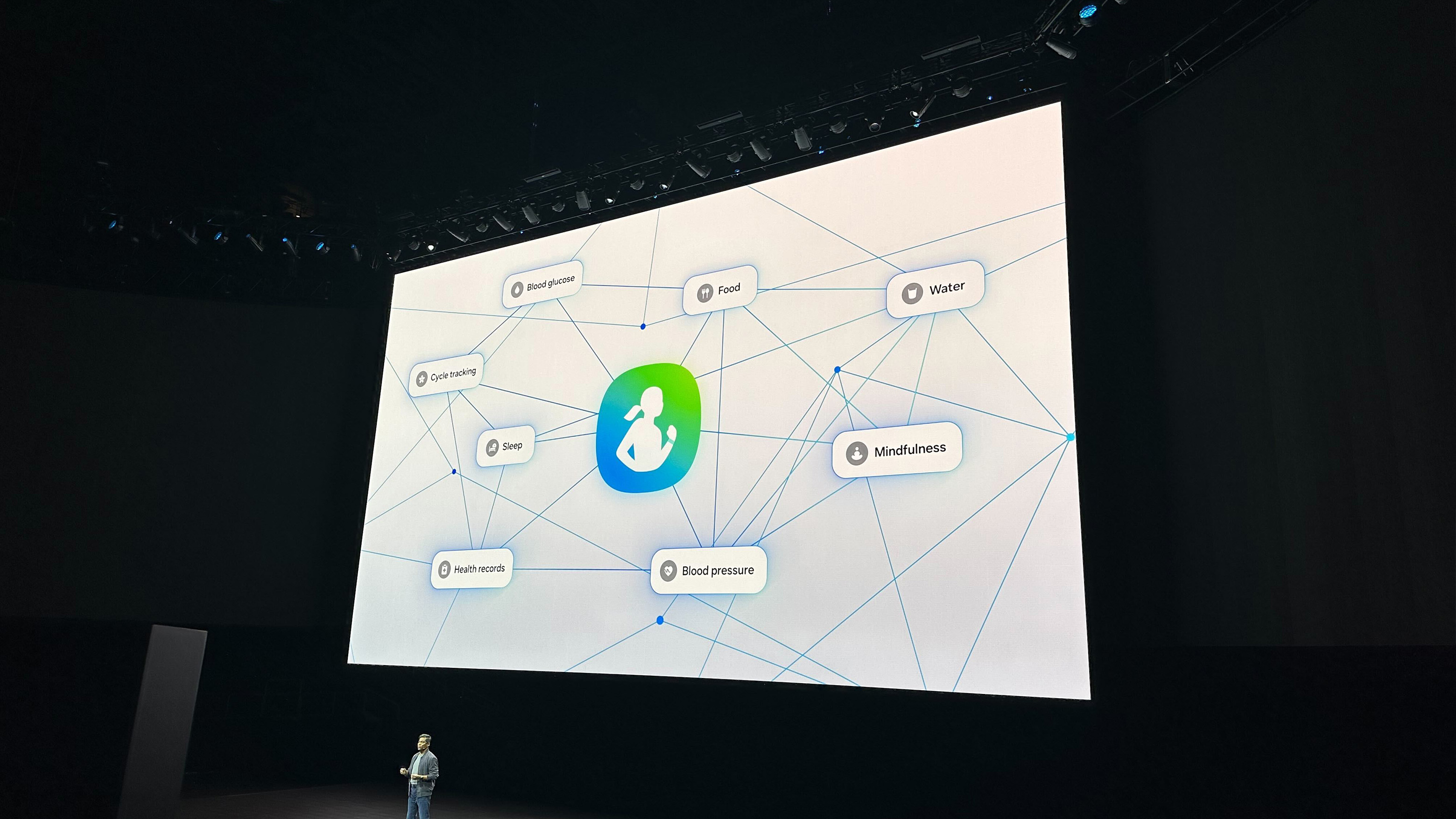
I perked up when Raja claimed that "Samsung Health will become your own personal health coach" before I realized that its definition of "coaching" was, again, less about fitness and more about data-driven health guidance.
Still, I can't help but be intrigued.
Samsung Health will let you choose a focus — sleep, weight loss, exercise, or overall health — and customize your home screen to match your goals, highlighting wellness tips like how your resting heart rate or activity levels compare to past days or weeks.
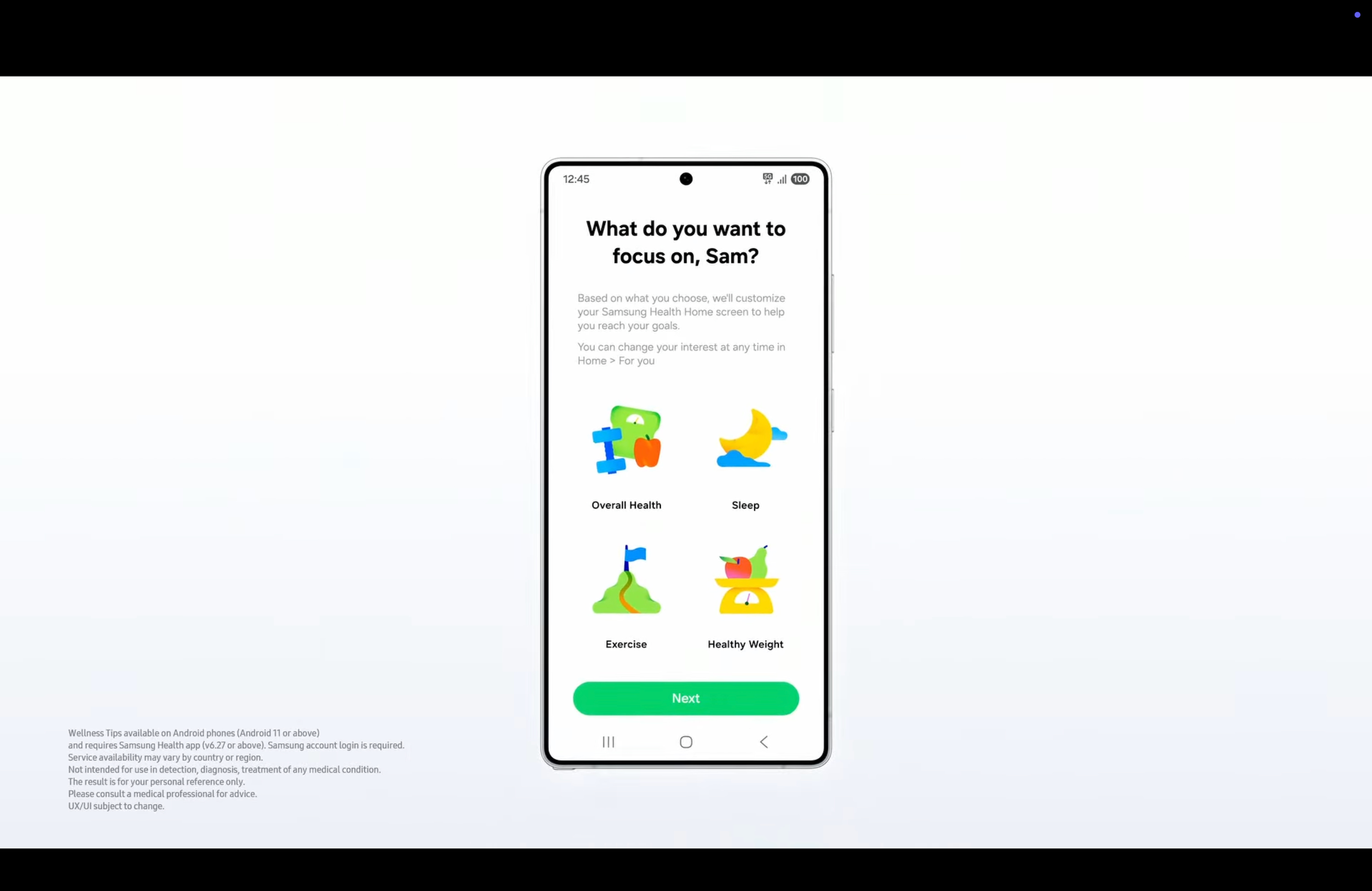
Of course, other fitness apps like Fitbit let you customize your widgets to highlight relevant data, and Samsung first announced wellness tips last year. So, this isn't what I'd call groundbreaking until I see more.
What's more compelling is Raja's mention of "AI tools" that'll let Samsung Health users "ask questions, get real-time insights, and receive personalized coaching as if you would from your own personal health assistant."
It sounds like Samsung intends to provide a health-themed LLM backed by Gemini that incorporates your Galaxy Ring data or your doctor's recommendations to make things "personalized."
We've seen other fitness-themed chatbots like Amazfit's Zepp Coach AI, but they're usually generalized with no way to add context to your smartwatch data. The Oura Ring 4 does a pretty good job at this.
If Samsung actually pulls off a Health Coach AI, it could change the game for health apps in general with its specificity. It'll also mean Samsung will have to shoulder the responsibility of guiding people's health decisions, and not letting AI hallucinations or incorrect health sensors lead to poor advice.
All-in on AI health
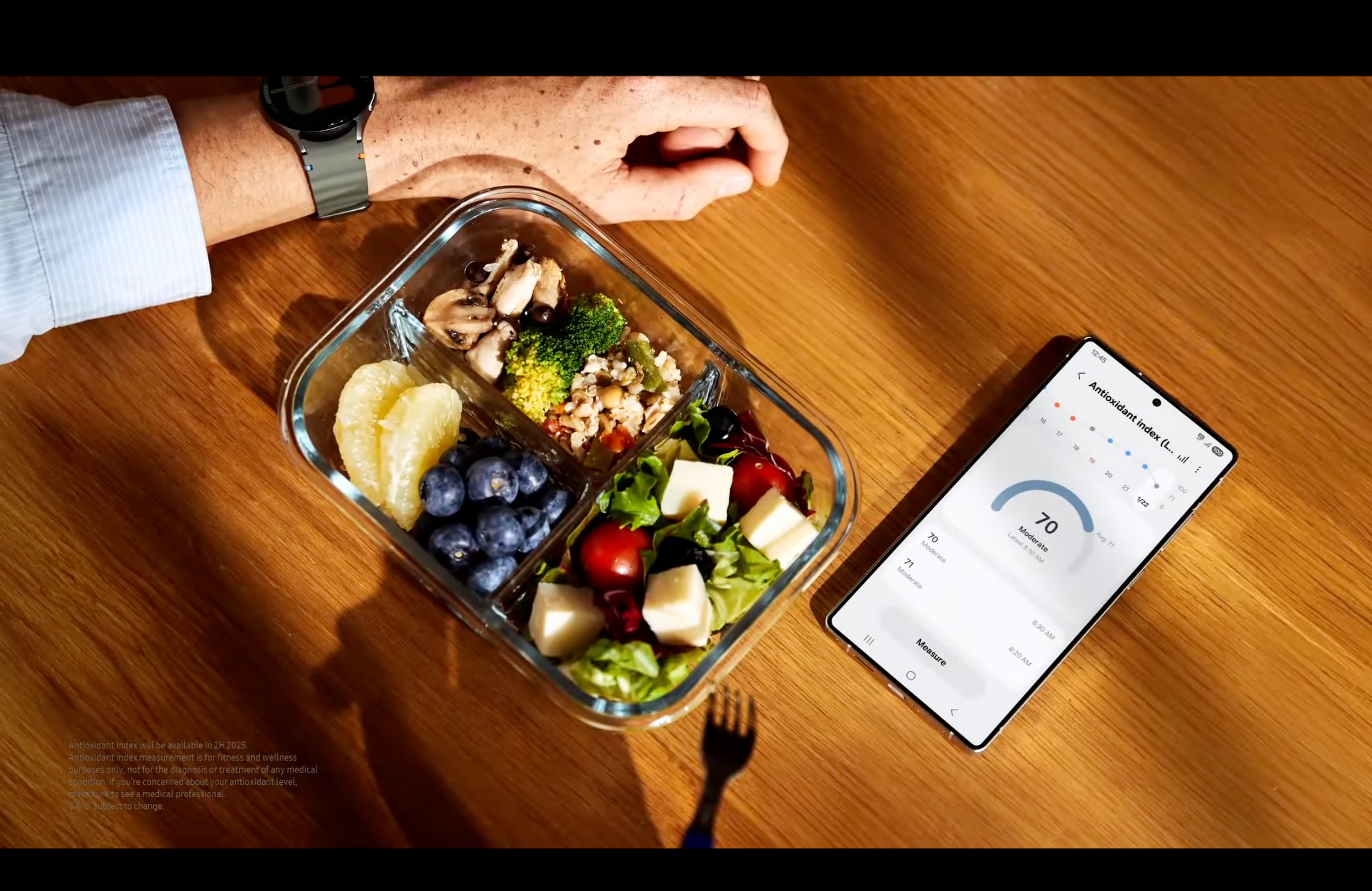
Samsung also announced that it would use your nutrition log to track your beta-carotene levels and show an "antioxidant index" graph. This data will help Samsung provide "personalized nutrition advice" plus deliver "tailored meal plans and recipes."
Beyond nutritional health, Samsung Health will "monitor your mood" with a simple mood check-in, guiding you to meditation or breathing exercises if your mood suggests you'll benefit from this.
In both cases, Samsung is trying to make Health an all-in-one destination and beat out specialized meditation and nutrition apps like Calm or MyFitnessPal. That's much less interesting to me, but if an AI-personalized "tailored meal plan" could account for needing more of a specific vitamin or being allergic to something, that could certainly appeal to a wide range of people.
Samsung even mentioned during the subsequent smart home section that you could tell the Bixby AI to "Turn off the TV when I fall asleep" and have it do so using your Galaxy Watch biometrics. Of course, you'll probably need a Samsung phone, watch, and TV to pull this feature off, so it's only for superfans.
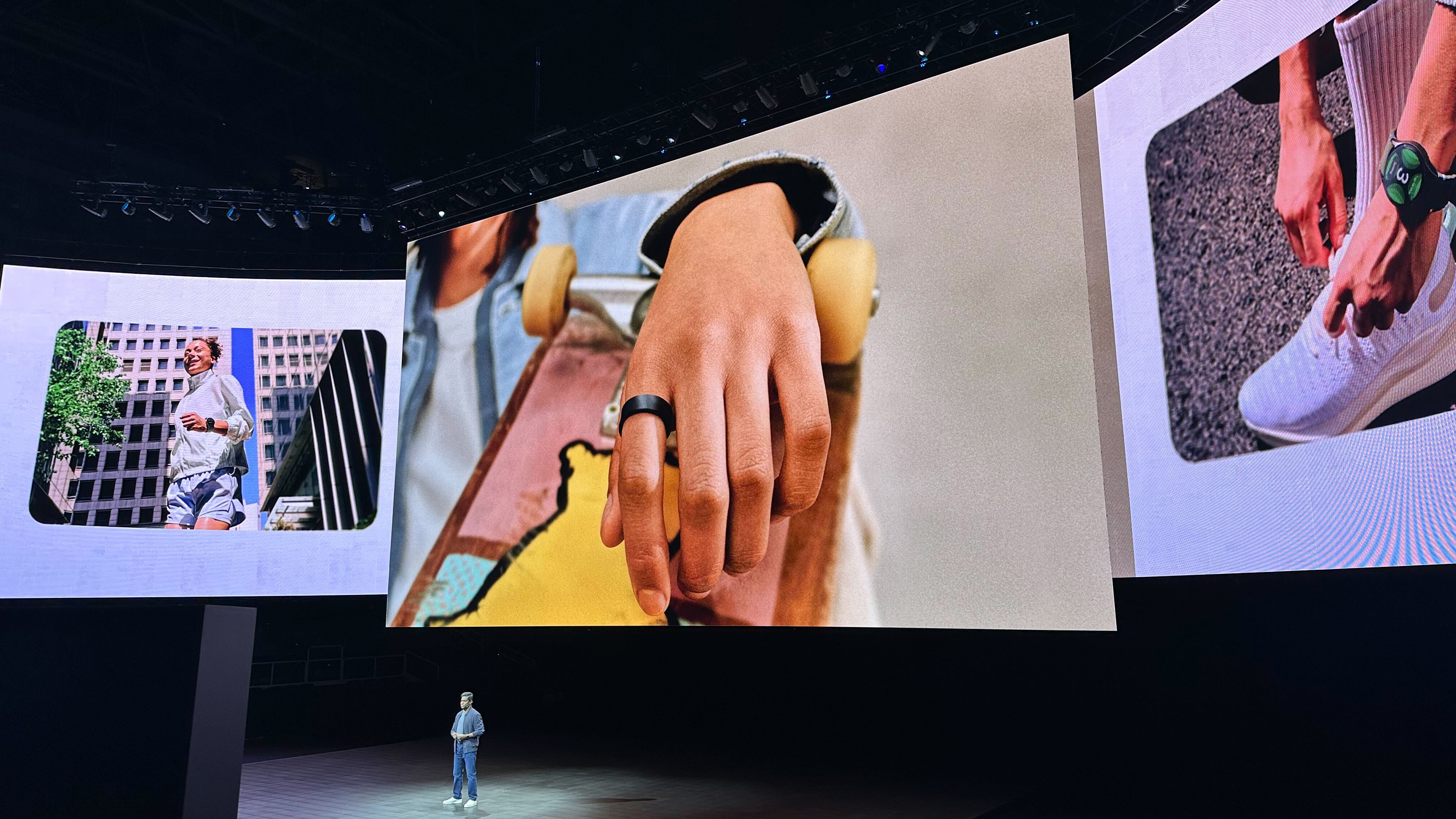
I'm not sure whether or not I can truly trust "AI" to guide my health or diet decisions. But if I'm going to trust any company on this front, it's Samsung. Its experience in the health sphere is pretty darn extensive. By the time Wear OS 6 and One UI 7 Watch arrive this summer, we'll all have the chance to test these tools for ourselves.
I will continue to demand more from Samsung on the fitness front since its vascular load data doesn't seem especially useful for athletes to judge if they're improving. Whether it be daily recommended workouts or a fitness AI coach to go with the health coach, Samsung has room to grow to keep up with fitness brands.
But despite Samsung only giving us scraps and vague promises, I'm still happy with how Galaxy Unpacked 2025 promised to make AI useful in real-life health scenarios, not merely helping you pretend you're a good photographer or generate silly AI art.

Michael is Android Central's resident expert on wearables and fitness. Before joining Android Central, he freelanced for years at Techradar, Wareable, Windows Central, and Digital Trends. Channeling his love of running, he established himself as an expert on fitness watches, testing and reviewing models from Garmin, Fitbit, Samsung, Apple, COROS, Polar, Amazfit, Suunto, and more.
You must confirm your public display name before commenting
Please logout and then login again, you will then be prompted to enter your display name.
